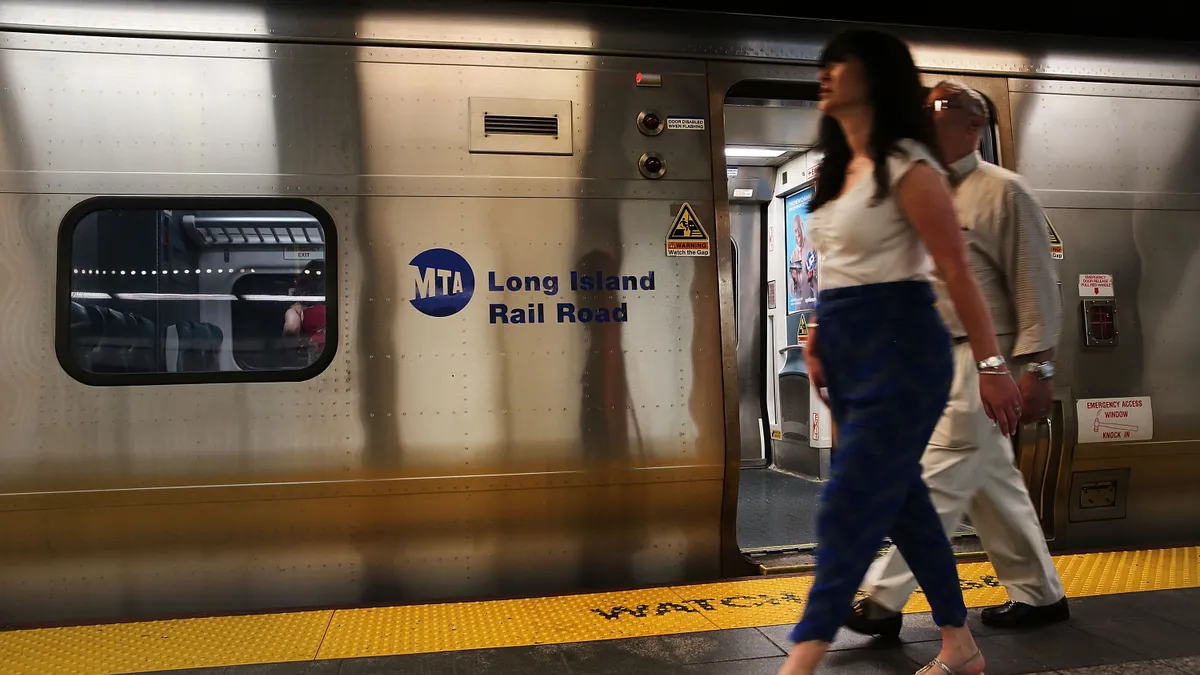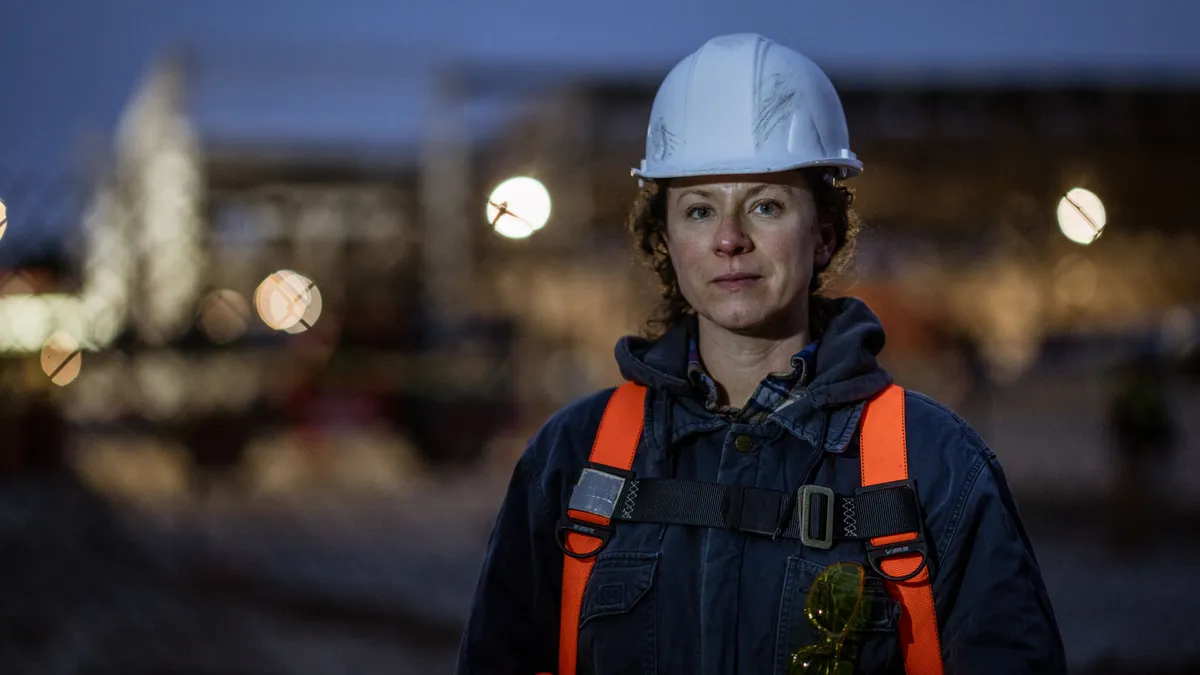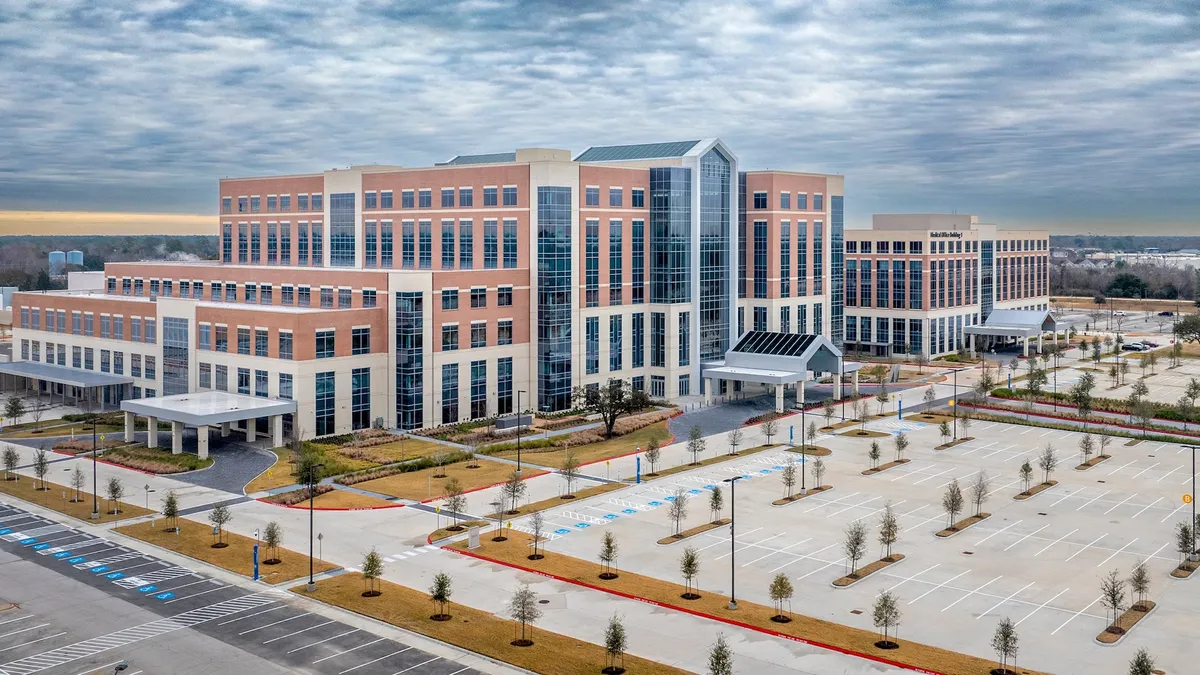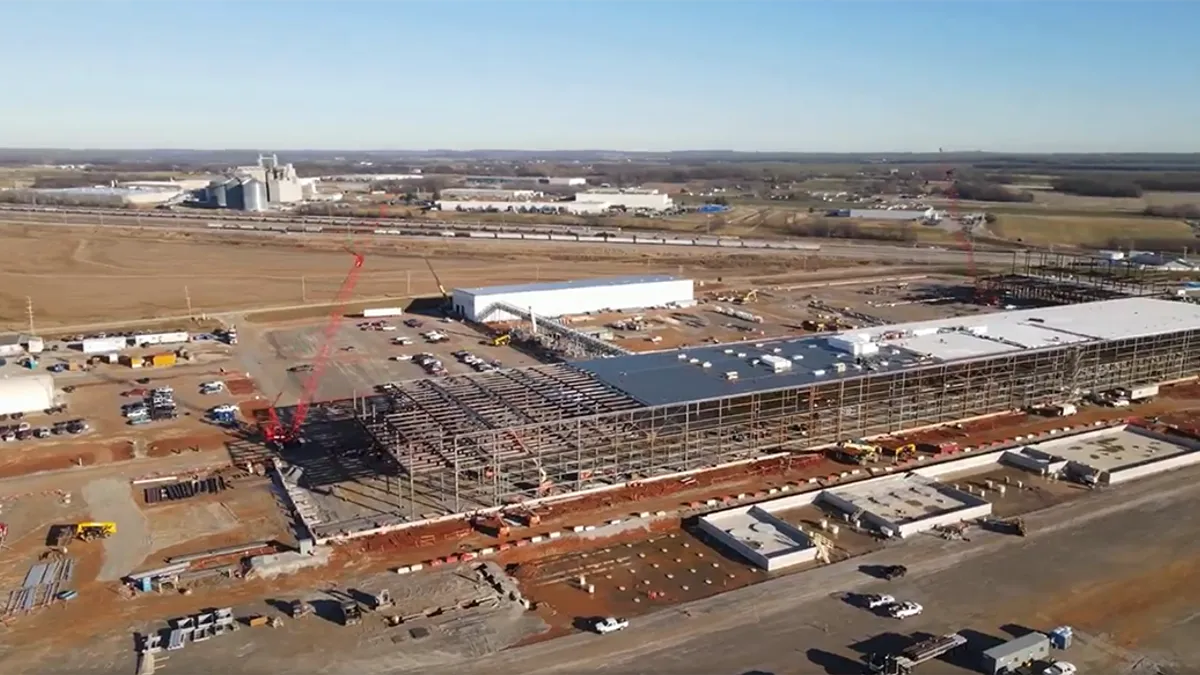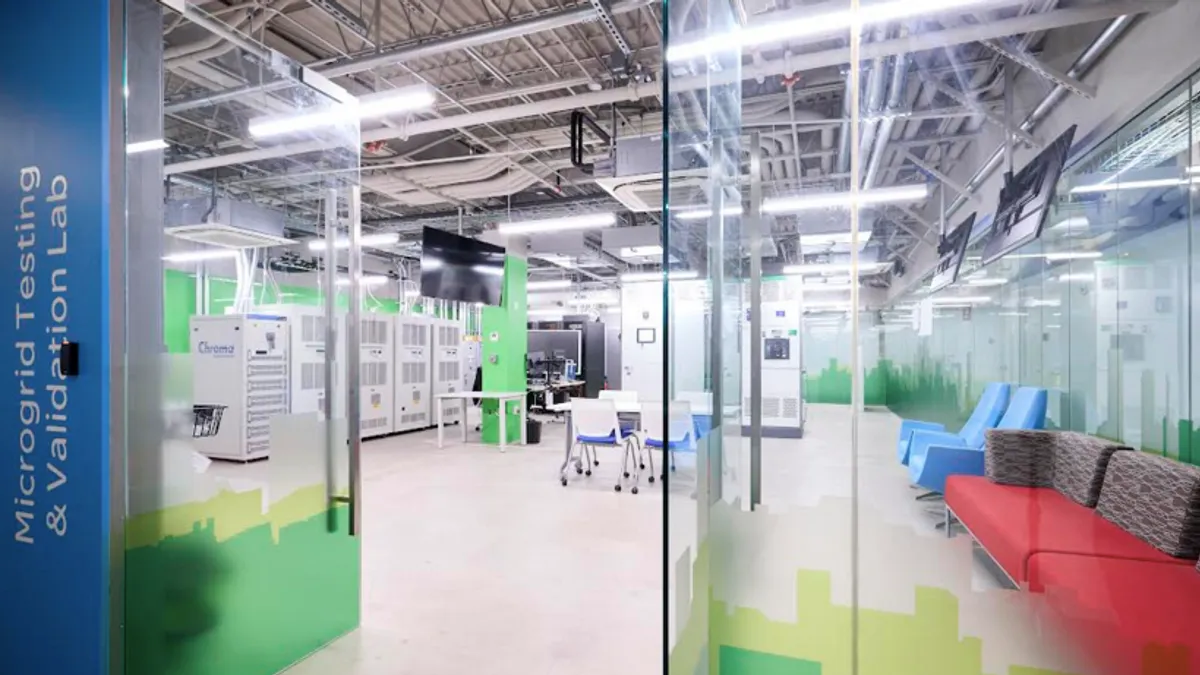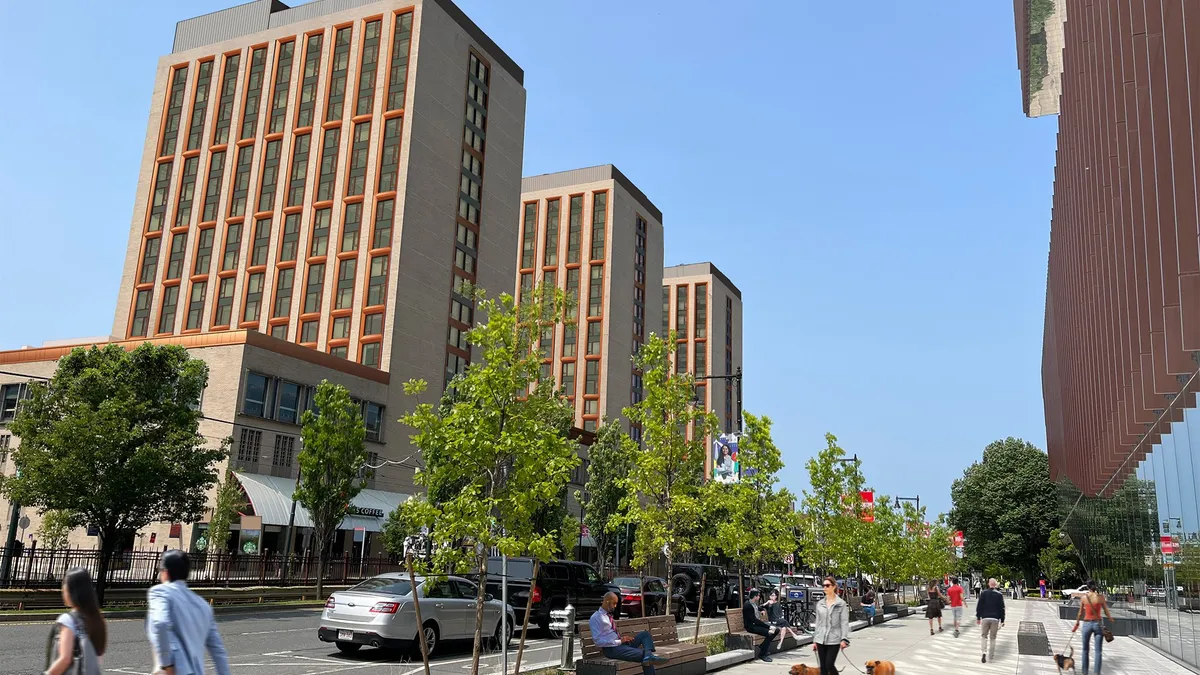This article is one in a series of conversations with women leaders in the construction industry. Click here for past discussions.
One of Eva Chan Hu’s favorite projects also happens to be a very high-profile one: The $2.5 billion extension of the Long Island Rail Road, which wrapped up in October on time and under budget.
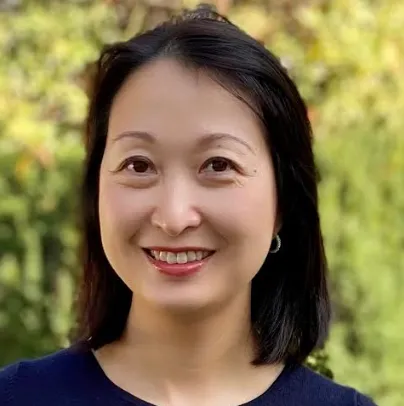
The New York City-based deputy commercial manager for Jacobs has worked on the LIRR project since it launched in early 2018, and had a few different roles along the way. She started on the contract management side managing 20 sub-consultants. From there, she moved into risk management, and later took on the role of deputy commercial manager.
The expansion adds an additional 9.8-mile-long third track to LIRR’s Main Line, increasing passenger capacity, alleviating congestion, improving overall rail services and enhancing rider and vehicle safety. Jacobs worked with joint venture partner Arup to provide project management oversight for the project.
Here, Hu talks with Construction Dive about challenges on the LIRR project, how she got into construction and her advice for young women considering a career in the industry.
This article has been edited for brevity and clarity.
CONSTRUCTION DIVE: How long have you worked in construction?
EVA CHAN HU: I have almost 25 years of professional experience and I have been working with Jacobs for 15 years.
Tell us about the LIRR project.
Working on the LIRR project has been a real career highlight. It’s been challenging but so rewarding to see it come to fruition. This railroad was built 100 years ago when the population was much smaller, so having only two tracks — one going east and one going west — worked. But as the population grew, so did demand. The railroad was already being run at capacity, and if anything happened, with just two tracks, everything came to a halt. A fallen tree, bad weather, icy conditions, a train breaking down — the railroad stops.
The new third track serves as a buffer so if something happens, a backup is available to handle the load. The expansion also increases capacity by 50%, with commute times reduced by almost 40 minutes, saving time and providing reliability. It’s been really rewarding to work on a project that delivers such a significant community impact.
What did you learn by working on such a massive project, especially during the early days of the COVID-19 pandemic?
Risk management plays a critical role on a high-profile megaproject like the LIRR expansion project. We had to be five steps ahead, anticipating every scenario, thinking of possible outcomes and discussing each of them with the team. With a project of this scale, we were up against a critical deadline and had to overcome a host of unexpected challenges to deliver the project on time and on budget, most notably, the COVID-19 pandemic.
I’m from Hong Kong, and many years ago, the city experienced a small outbreak of severe acute respiratory syndrome (SARS). When I heard about what was happening in Wuhan in late 2019/early 2020, it reminded me of the SARS outbreak. I alerted the team, warning them this had the potential to become a serious issue.
We started discussing possible risks, one of which was how the virus might impact the supply chain. Of course, none of us knew we were facing a pandemic, but as the virus spread, we moved from risk management to crisis management, and before we knew it, we were working 100% remotely.
The situation was very fluid. We had to adapt to supply chain issues and other disruptions and develop an alternative schedule so work on the project could continue uninterrupted.
We had to act fast and in just a matter of days, we established systems and ways of communicating — an entire new working environment — because stopping the project wasn’t an option.
What led you to choose construction for your career?
I have an undergraduate degree in civil engineering and a master’s degree in finance and management. I pursued a career in civil engineering because I wanted to build things, but I quickly learned engineering encompasses so much more than I imagined, with endless opportunities for learning and growth.
Having degrees in both engineering and finance and management has enabled me to shift my career into areas I enjoy, such as planning, benefit cost analysis, financial modeling and risk management.
What advice would you give to young women considering construction as a career?
A career in engineering and construction is so varied — you will never get bored. Since starting my career as a civil engineer, I’ve had the opportunity to do many things — from design and planning to risk and commercial management.
The best advice I can offer is don’t be afraid to try something new and speak up if you’re interested in a new challenge. While it may be a traditionally male-dominated industry, many of my colleagues at Jacobs are women, including many in senior roles, and I am surrounded by amazing talent. There is a real sense of pride and purpose in working together to improve people’s lives.



